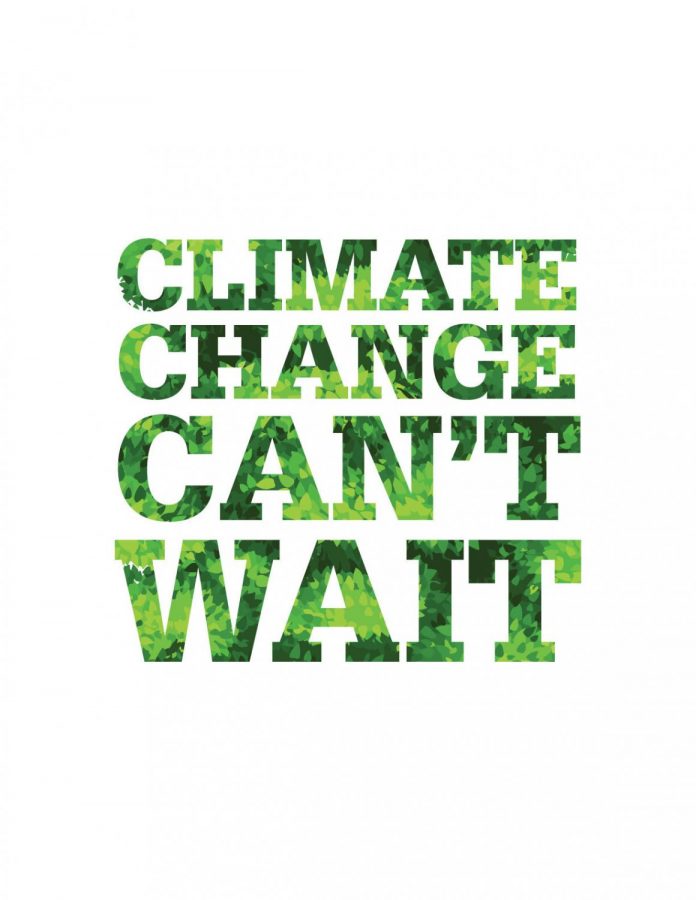U to Create Updated Climate Change Action Plan to Meet Local and Global Challenges
October 8, 2022
The University of Utah recently announced plans to create a new Climate Change Action Plan and move up its target date for net-zero emissions from 2050 to 2040.
“The university has made a lot of progress over the last decade,” said Dr. Brenda Bowen, co-chair of the Presidential Climate Commitment Task Force. “Huge improvements in the amount of renewable energy we’re using on campus, great improvements in terms of building efficiency, and actually our greenhouse gas emissions have gone down even as the campus has continued to grow.”
Despite these advancements, Bowen, who’s also the director of the Global Change & Sustainability Center, said the university still felt there were improvements to be made, including moving up the target date for carbon neutrality. “There’s a consensus on the urgency,” Bowen said. “We don’t have time.”
Bowen added when she was in college, people did not understand climate change because they were not experiencing the effects of it firsthand, but that is no longer the case.
“We have wildfires, we have smoky skies and we have increased temperatures,” she said. “We are living it now.”
In addition, something that the university felt was important to include in the updated version of the Climate Change Action Plan was more of a focus on equity.
“Something that wasn’t necessarily a part of the conversation to the level that campus leaders felt it should be is sort of acknowledging the inequitable burden that is placed on marginalized communities in these climate disasters and in our approach towards climate mitigation and adaptation,” Bowen said. “What does it mean to be taking that into account every step along the way in terms of how we engage with our community, who we invite to the table and hear from, how we articulate what we’re hearing, how we prioritize things?”
The Climate Commitment Task Force that Bowen co-chairs with Kerry Case have also been working with student organizations on the new plan.
“There are groups who have been working on this for a long time, and they’ve organized around this,” Bowen said. “So going to those groups and letting the voices come from those conversations, any students who are actively engaged in those spaces.”
The most prominent of these groups is the Associated Students of the University of Utah.
“We attend meetings with leading climate experts and offer support and suggestions for the drafting process of the document,” wrote Sage Acord, a fourth-year biology major and director of sustainability for ASUU, in a statement.
Acord serves as a steering committee member on the task force, along with ASUU president Taylor VanderToolen. This position was initially intimidating for her as a student working with experts in the field, but she’s overcome that feeling as the planning went on.
“Members of this committee have made it clear to me that they value my opinion and want student voice to influence the university’s actions,” she said.
Acord’s primary goal as a committee member is to let the student body know that their voice is valued.
“We as student representatives are especially concerned with making sure the student body knows about and participates in this opportunity to tell the university their biggest climate concerns on campus,” she said.
This opportunity is available to all U students, as well as members of the broader Salt Lake City community, through a climate survey and upcoming roundtable discussions to compile feedback for the plan. “Our best plan is one that is informed by the most voices and the bulk of our community,” Bowen said. “We want to hear from everybody.”
Acord echoed that sentiment. “Student voice matters,” she said. “We want all voices heard and historically marginalized voices highlighted.”
She added that contributing to the action plan through the survey or the roundtables is a unique opportunity for students to have a lasting impact on the university and the planet. “Expressed opinions today will turn into written plans within months, actions within years and positive change for decades to come,” Acord said.
Drafting the new plan is only the beginning. “This is just a planning activity,” Bowen said. “It’s really the long-term implementation that’s going to be another place for students to continue to engage as we figure out how to do the things that we prioritize and plan for.”
On Friday, Oct. 7, ASUU planted 10 pink and white cherry blossom trees in order to highlight the new plan as well as symbolize their commitment to the long-term fight against climate change.








